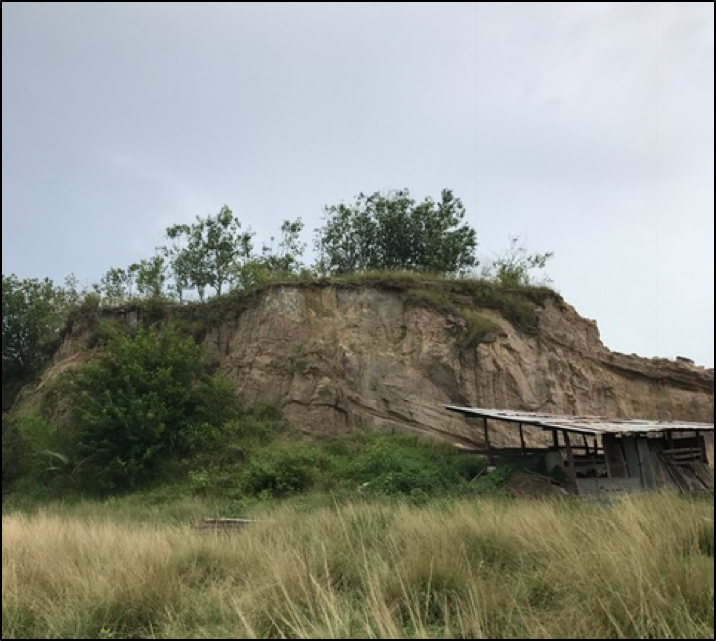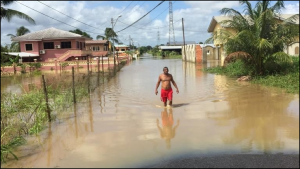
October 1, 2019, by lzzeb
The Potential of Carbon Storage in the Forest Formation, Trinidad Summer 2019 Fieldwork
A blog by Leah Ragbir
Fieldwork in the Caribbean sounds like the ideal situation. The cool breeze, brilliant sunshine and picturesque scenery make it a dream location. My dissertation on the Potential of Carbon Storage in the Forest Formation, Trinidad provided me with such an opportunity to carry out work in the Southern-most island of the Caribbean archipelago. The fieldwork consisted of geologically mapping and sedimentary logging two at-surface outcrops of the Forest Formation for a total of 8 days. However, things did not go to plan. I learned so much from this endeavour. Here are my top tips for fieldwork from my experience over the summer months.
- Familiarize yourself with your study area and the route to get there.
This proved to be my one of my best assets during the summer period. The expectation of an enjoyable field work experience was diminished by the start of the rainy season in June. This was exacerbated by an unusually busy hurricane season which brought many tropical storm warnings, accompanied by thunderstorms with torrential rain for long periods of time each day, and compounded by the town having a history of severe flash flooding. The outcrop is an abandoned oil sand quarry – heavily weathered, which made it unsafe in the torrential rain. These were two large factors that unfortunately prevented me from successfully completing my fieldwork for this summer. However, it did bring the importance of knowing the area well to my attention and prevented unsafe situations to and on the study site.
- Ensure you know how to use all field equipment properly.
Some equipment may have the same function but may look different and have different modes of operation. Knowing how to use your equipment properly and exploring all of its functions is essential for efficiency and enables one to get an accurate reading in the field. For this summer, I was exposed to a type of compass clinometer which I had never used before. Due to this, I spent valuable time learning how to operate it and ensuring I understood it well. Practising using your equipment is key to accomplishing your objective in the field effectively and efficiently.
- The fieldwork is only as good as you are.
The above tips are simple but fundamental and sometimes taken for granted. My fieldwork this summer has reiterated the importance of getting the basics right. This has encouraged me to make a conscious effort to refresh my memory of what I have learned during my last two years of fieldwork at the University of Nottingham.
Though my fieldwork endeavour was unsuccessful during this summer, I am looking forward to returning to Trinidad in December to complete the fieldwork with this fresh outlook and new understanding of what goes into independent research.

Photo source, Ministry of Works and Transport of Trinidad and Tobago http://www.looptt.com/content/appeal-help-flood-victims-penaldebe
No comments yet, fill out a comment to be the first

Leave a Reply